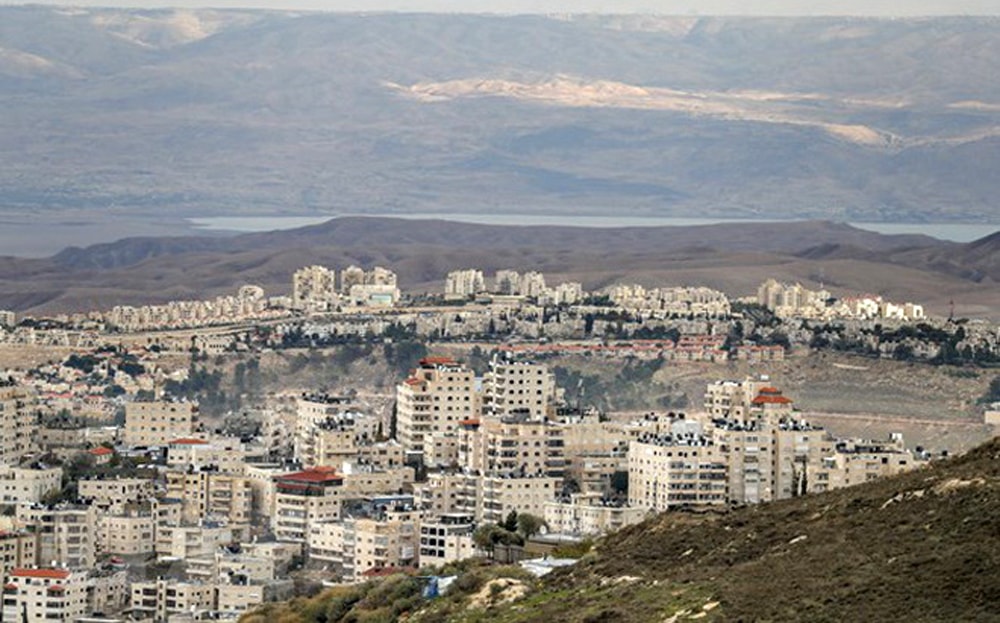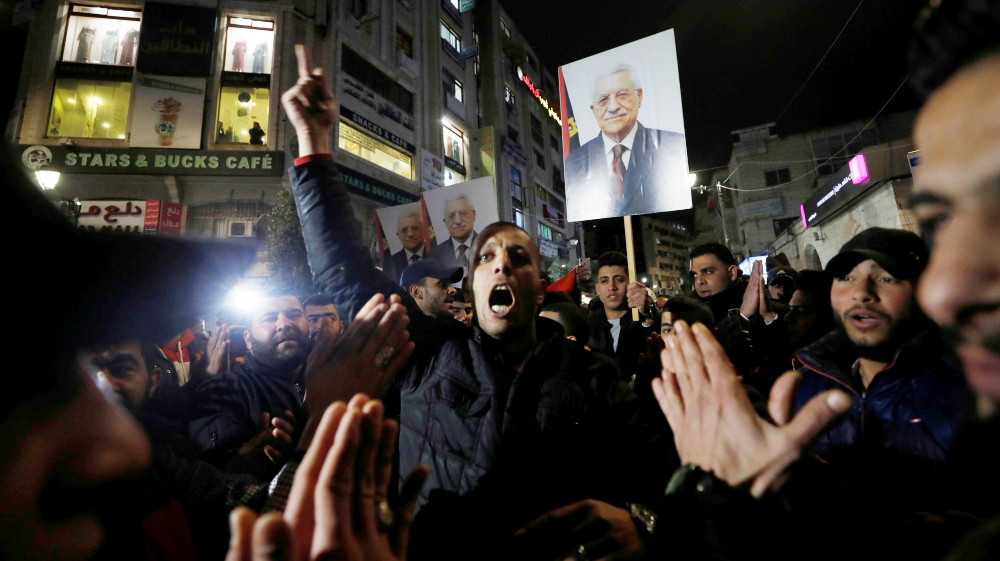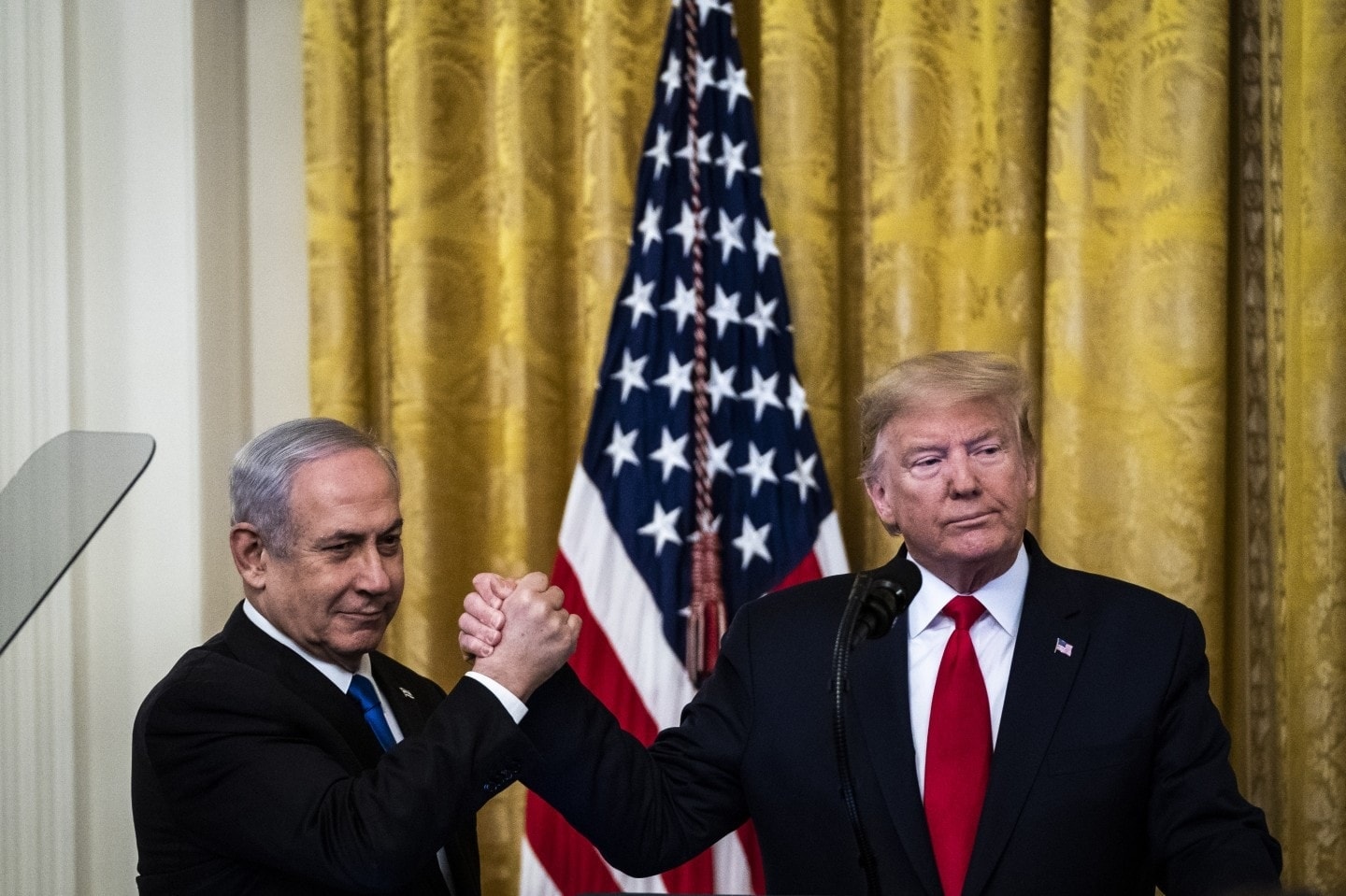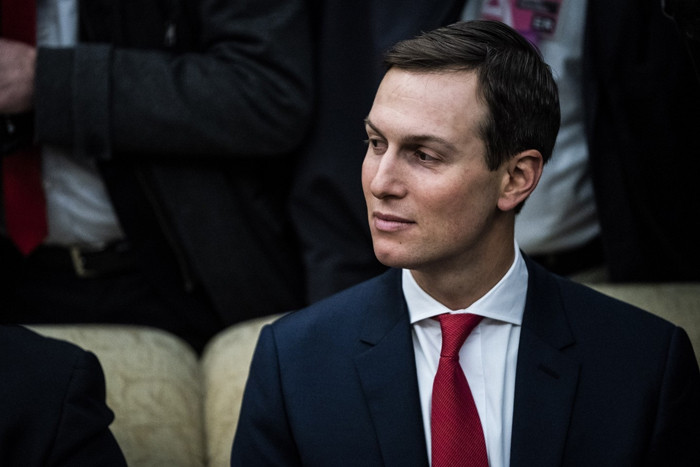Plan of the century or meaningless deal?
(Baonghean) - After more than 3 years of incubation, the administration of US President Donald Trump has finally officially announced the ambitious "Middle East Peace Plan" - which the US leader himself affirmed is a big step forward for the peace process in this region. However, while the Israeli government "joyfully" calls this a historic step forward, Palestine and many other countries are raising a wave of strong protests and criticism!
Some are happy, some are negative.
 |
| The Israeli settlement of Maale Adumim (below) in the West Bank, on the outskirts of Jerusalem, December 27, 2019. Photo: AFP/TTXVN |
Also focusing on the two-state solution for Israel and Palestine, in which some areas in East Jerusalem will be the future capital of Palestine. However, the "Middle East Peace Plan" that President Donald Trump just announced still faces conflicting views. Because along with this future, the Palestinian state will be forced to accept that the US will recognize the sovereignty of settlements and occupied areas in the West Bank for the Israeli government as well as redraw the borders of the West Bank and East Jerusalem. This is obviously something that the Palestinian government will find difficult to accept, despite the fact that the Trump administration previously announced an "economic plan", in which it will invest about 50 billion USD to support economic recovery for the Palestinian people, Jordan and Egypt.
Since the US recognized Jerusalem as the capital of Israel and moved the US embassy there, the Palestinian Authority has no longer considered the US a mediator for the peace process in the region.
Even before the peace plan was officially announced, thousands of Palestinians protested against an agreement that was “too biased” toward Israel. Meanwhile, Palestinian Prime Minister Mohammad Shtayyeh said that this was not really a peace plan in the Middle East, and called on world powers to boycott this initiative. Furthermore, in a rare move, two rival movements in Palestine, Hamas and Fatah, have just met to discuss joint efforts to oppose President Donald Trump’s “Middle East Peace Plan”. These are understandable reactions when looking back at the past time, it is a fact that since the US recognized Jerusalem as the capital of Israel and moved the US embassy there, the Palestinian government no longer considers the US as a mediator for the peace process in the region.
 |
| Protesters hold up pictures of Palestinian President Mahmoud Abbas during a protest against US President Donald Trump's "Middle East Peace Plan" in the Israeli-occupied West Bank. Photo: Reuters |
Not only domestically, Iranian officials have also spoken out against this US plan. Iranian Presidential Advisor Hesameddin Ashena said, "This is not a peace plan but just a plan of imposition and sanctions." Many experts also commented that the Trump administration's "peace plan" is actually greatly increasing the injustice in the already complicated peace process in the Middle East. Even more seriously, this could be an "attack on peace" in the region.
However, on the contrary, it is understandable that Israeli Prime Minister Benjamin Netanyahu praised the plan of the US ally as "a realistic direction towards lasting peace in the Middle East". Some other countries such as the UK, Jordan or Egypt, although cautious, have also expressed support for this new plan of Washington!
 |
| US President Donald Trump and Israeli Prime Minister Benjamin Netanyahu. Photo: Washington Post |
Distraction!
With the impressive assessment of “Deal of the Century”, the main architect of this “Middle East Peace Plan” is Jared Kusher - Senior Advisor, son-in-law of President Trump, who has always supported Israel’s illegal settlement plans on Palestinian land. Critics say that the plan is announced as the result of careful negotiations but in reality is only between the US and Israeli governments!
Not only has the "Middle East Peace Plan" not been able to break the deadlock in negotiations, it is also stirring up a wave of strong opposition in the region.
Faced with this reality, observers commented that, over the past three decades, previous US presidents have more or less expressed their goodwill to listen to and consult with the Palestinian side for the US-led Middle East peace process. However, under US President Donald Trump, even participating in negotiations is a "luxury" for the Palestinians. Therefore, not only has the Trump administration's "Middle East Peace Plan" not been able to break the deadlock in negotiations, it is also stirring up a wave of strong opposition in the region.
 |
| Jared Kusher - Senior Advisor, son-in-law of President Donald Trump - Main architect of the "Middle East Peace Plan". Photo: Washington Post |
But despite the expected criticism, President Donald Trump seems determined to announce the Middle East peace plan now and not later! Obviously, in the context of the ongoing impeachment in the Senate, this move will somewhat reduce the focus of domestic public opinion on the President.
Moreover, taking advantage of every situation is not redundant for Mr. Trump to gain the support of voters when the presidential election is approaching. In particular, supporting the ally Israel also contributes to increasing votes from the Jewish American community, which has been decisive in any US presidential election up to now. Not to mention, this step is also a wise move by President Trump to tighten the alliance with the Israeli Prime Minister who is entangled in corruption allegations in the country. More broadly, although facing criticism, it is clear that regional and international public opinion is also "stirred up" and concerned about the US foreign policy - which has been considered lackluster in the Middle East for a long time!
Even from another perspective, observers believe that President Trump also has a basis to confidently present the "Middle East Peace Plan" this time. In terms of economics, Mr. Trump believes that within the next 10 years, if implemented well, the Palestinians will have 1 million more jobs, the poverty rate will be halved and GDP will double or triple. This is something that the Palestinians can consider. Meanwhile, in terms of other political agreements, Mr. Trump may think that if the Palestinians object, there will not be a better agreement.
 |
| Page 181 of President Trump's Middle East Peace Plan includes a map demarcating the final borders of Israel and a future Palestinian state. Photo: Foreign Policy |
Therefore, facing the uneven division of interests, through this "Middle East Peace Plan", President Trump may also want to send a message that if peace agreements are too difficult to implement, the US government is ready to use unexpected measures to break the stalled and deadlocked process - like the unilateral recognition of Jerusalem as the capital of Israel before. Of course, more than anyone, Mr. Trump understands that any over-the-top move will have to pay a price - including his political future. However, in a rather sensitive and special context like today, it seems that just stirring up public opinion in the country and the region is a successful calculation of President Trump when announcing this "Middle East Peace Plan"!

